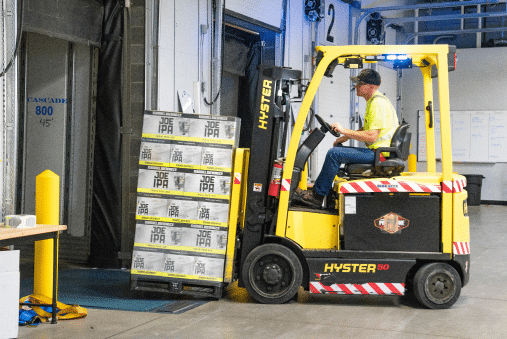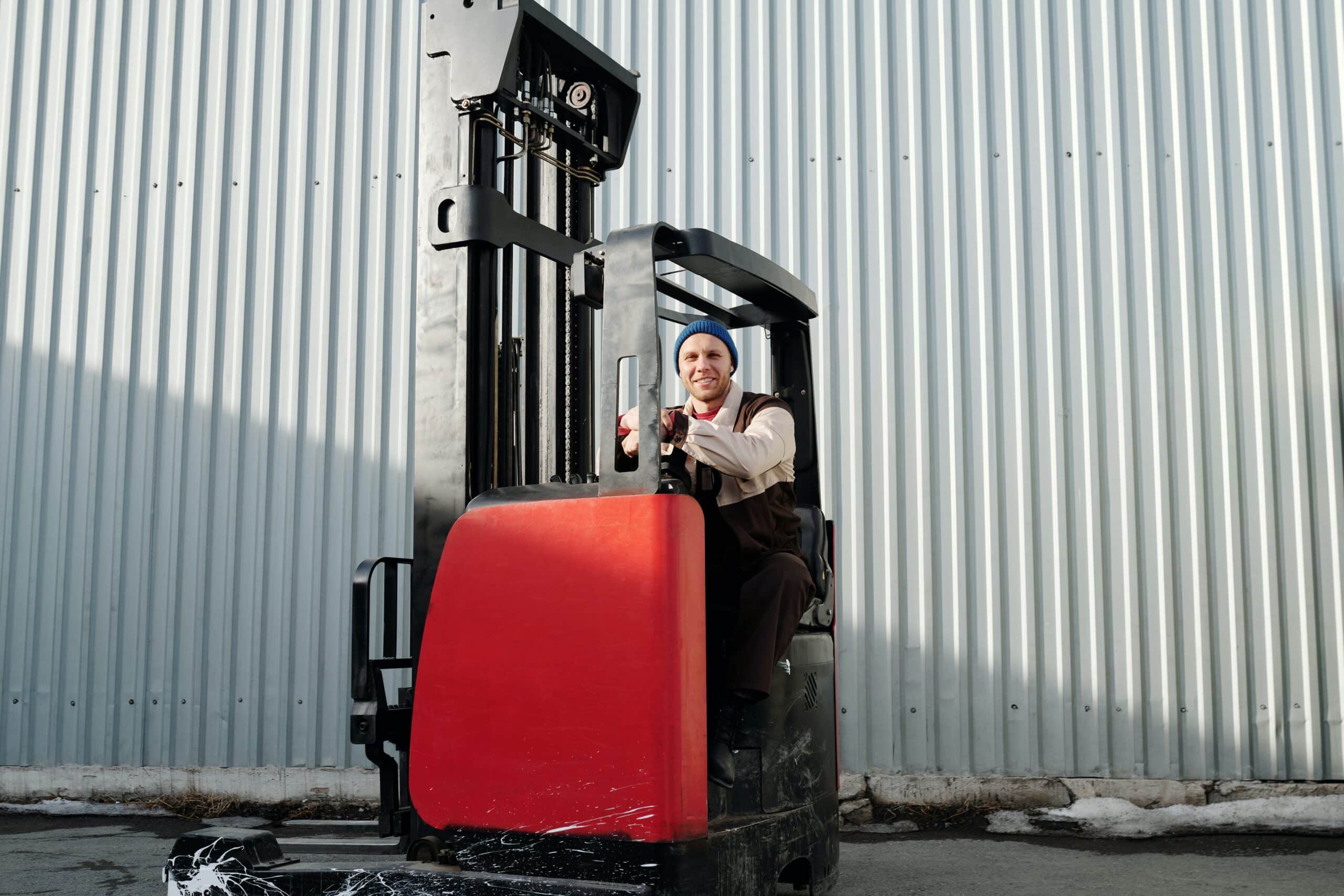
What are the Skills of a MAterial Handler?
Material handlers are some of the most essential warehouse jobs. They properly receive, store and distribute goods and materials throughout their facility. This role requires a combination of physical activity, precise attention to detail, and an understanding of the ins and outs of a warehouse.
In this article, we’ll break down the top three most important aspects of a material handler job. Hopefully you’ll gain a clear picture of what this job entails and how to land your next material handler role.
1. Receiving and Storing Inventory
One of the primary duties of a material handler is receiving and storing inventory. This involves the following key tasks:
- Inspection and Verification: When a warehouse receives shipments, material handlers are responsible for inspecting goods for damage and verifying that the quantities and items received match the purchase orders.
- Labeling and Documentation: Accurate labeling of items is crucial to ensure they are easily identifiable during storage and retrieval. Material handlers must also record all correctly by documenting the receipt of goods in the warehouse management system (WMS).
- Safe Storage Practices: After verification, material handlers transport goods to their designated storage areas. This involves the use of forklifts, pallet jacks, or hand trucks. Storing items safely and efficiently is critical, as improper storage can lead to damage or loss of inventory.
2. Order Fulfillment and Material Movement
Another essential aspect of a material handler’s job is facilitating order fulfillment and the movement of materials within the warehouse. This includes:
- Picking and Packing Orders: Material handlers are tasked with selecting items from storage areas based on order requirements. They must ensure that the correct quantities and products are picked, packed securely, and labeled for shipment. Attention to detail is critical here to avoid any mistakes and provide customers with the most optimal shopping experience.
- Internal Material Transfers: Within a warehouse, material handlers may also be responsible for moving materials between different areas, such as from receiving to storage, or from storage to production lines. This requires an understanding of the warehouse layout to move products quickly and efficiently.
- Inventory Management: Material handlers often play a role in managing inventory levels by tracking items as they move through the warehouse. This involves conducting regular inventory counts and updating systems to reflect current stock levels.
Order fulfillment and material movement are vital to meeting customer demands and maintaining the flow of operations within the warehouse. Material handlers must work closely with other team members and departments to complete all processes on time and with precision.
3. Maintaining Safety and Compliance
The final key responsibility of a material handler is completing all tasks in a safe and compliant manner. This includes:
- Adhering to Safety Protocols: Warehouse environments can be hazardous, with heavy machinery, high shelves, and the constant movement of goods. Material handlers must follow safety protocols, such as wearing personal protective equipment (PPE), operating machinery correctly, and being aware of their surroundings to prevent accidents.
- Equipment Maintenance: Material handlers often use equipment like forklifts and pallet jacks daily. Ensuring that these machines are in proper working condition is essential. Regular maintenance checks and reporting any issues to supervisors can prevent equipment failures that could lead to accidents or delays.
- Compliance with Regulations: Warehouses are subject to various regulations, including those related to health and safety, environmental standards, and labor laws. Material handlers must be familiar with these regulations and ensure that their work complies with all applicable standards.
Safety and compliance are non-negotiable in a warehouse setting. Material handlers play a critical role in maintaining a safe working environment, which is essential for the well-being of all employees and the efficiency of warehouse operations.

How NCW Can Help You Find Material Handler Jobs
Finding the right job can be daunting, especially when you don’t know where to begin when looking for warehousing jobs. Step in NCW. Staffing agencies like NCW can be incredibly valuable as they specialize in connecting job seekers with employers looking for skilled material handlers. Here’s how they can help:
- Access to Opportunities: NCW continually establishes relationships with a variety of companies, giving job seekers access to job openings that may not be widely known to other job seekers.
- Guidance and Support: NCW’s experienced recruiters strive to get to know every candidate. They want to know what they like, and dislike, and what professional experience they have to help find them the most ideal job. Their team understands the requirements of material handler positions and can help you present yourself as a strong candidate.
With this all said, being a material handler can be a very fulfilling role and NCW can help find the right role for you. If you are interested in learning more and finding a job as a material handler today, contact NCW to get the conversation started!
Next Steps
At NCW, our recruiters are dedicated to making personal connections with every job seeker. We don’t want to just help you find your next warehouse job, we want to match you with a company and role that will accelerate your career to wherever you want to go. We’ll handle all the boring admin stuff—resume prep, interview scheduling, contract negotiations—so you can focus on what you do best. Plus, NCW offers ongoing support throughout your role to help you keep climbing the career ladder.
Ready to discover your success in the field?
Connect with a recruiter and find work in warehousing today!
